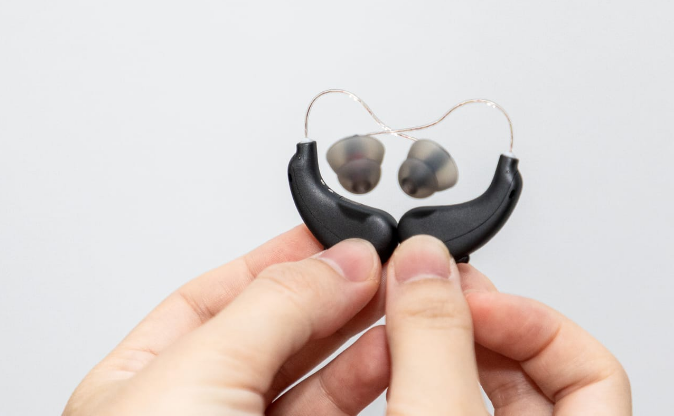Hearing loss is a prevalent concern that affects millions of people worldwide. The impact of hearing loss extends beyond the physical aspect, influencing social interactions, mental well-being, and overall quality of life. For those seeking hearing solutions, the cost of OTC hearing aids can be a significant barrier. This leads many to consider alternative options, such as second-hand hearing aids. In this article, we’ll explore the potential benefits and drawbacks of opting for second-hand hearing aids, helping you make an informed decision about whether they could work for you.
Understanding Hearing Aids and Their Importance
Hearing aids are sophisticated devices designed to amplify and process sound, enabling individuals with hearing loss to better perceive and understand auditory information. These devices come in various styles and technologies, catering to different degrees and types of hearing loss. The importance of hearing aids in improving communication, social engagement, and overall well-being cannot be overstated.
However, the cost of new hearing aids can be a considerable investment. According to the Hearing Loss Association of America, the average cost of a single hearing aid ranges from $1,000 to $4,000, depending on the level of technology and features. This cost often becomes a barrier for individuals who may not have access to insurance coverage or financial resources.
Exploring Second-Hand Hearing Aids
The concept of second-hand or used hearing aids involves acquiring devices that have been previously owned. This can be an attractive option for those looking to mitigate the financial burden associated with new hearing aids. Before delving into whether second-hand hearing aids could work for you, let’s consider both the potential advantages and drawbacks of this approach.
Advantages of Second-Hand Hearing Aids:
Cost Savings: The primary advantage of second-hand hearing aids is the potential for significant cost savings. Used hearing aids are often available at a fraction of the cost of new ones, making them a more affordable option for individuals on a budget.
Access to Advanced Technology: Acquiring second-hand hearing aids may allow you to access more advanced technology than you might afford with a new purchase. This is particularly beneficial for individuals who require features like Bluetooth connectivity, noise reduction, or customizable settings.
Reduced Environmental Impact: Opting for second-hand hearing aids aligns with principles of environmental sustainability. By extending the lifespan of a previously owned device, you contribute to reducing electronic waste.
Temporary Solution: Second-hand hearing aids can serve as a temporary solution while you explore long-term options or await changes in financial circumstances. This can be especially relevant for individuals in need of immediate hearing assistance.
Drawbacks of Second-Hand Hearing Aids:
Limited Customization: Second-hand hearing aids may not offer the same level of customization as new ones. Each person’s hearing profile is unique, and a used device may not be optimally tailored to your specific needs.
Unknown History: When purchasing second-hand hearing aids, you may not have a complete understanding of their history. Factors such as maintenance, repairs, and exposure to environmental conditions can impact the performance and longevity of the device.
Outdated Technology: Older models of hearing aids may lack the advanced features and technologies available in newer models. While cost-effective, these devices may not provide the same level of performance and functionality.
Compatibility Issues: Second-hand hearing aids may not be compatible with the latest accessories or assistive listening devices. This can limit your ability to take advantage of emerging technologies that enhance the overall hearing experience.
Determining if Second-Hand Hearing Aids Are Right for You
The decision to opt for second-hand hearing aids is a personal one that requires careful consideration of your specific needs, preferences, and financial circumstances. Here are key factors to help you determine if second-hand hearing aids could work for you:
Budget Constraints: If budget constraints are a primary consideration, second-hand hearing aids may offer a more affordable entry point into the world of amplified hearing. Assess your budget and weigh it against the potential benefits of cost savings.
Degree of Hearing Loss: The severity of your hearing loss plays a crucial role in the suitability of second-hand hearing aids. Individuals with mild to moderate hearing loss may find second-hand devices more fitting, while those with severe or profound loss may require the precision of newer models.
Technology Requirements: Consider your technological needs and preferences. If you rely on features like Bluetooth connectivity, noise reduction, or personalized settings, you may find that newer models better meet these requirements. However, if your needs are basic, a second-hand device might suffice.
Availability of Professional Support: Seek guidance from a hearing care professional before making a decision. They can assess your hearing needs, guide you on the appropriateness of second-hand devices, and assist with adjustments and customization.
Long-Term Goals: Consider your long-term hearing health goals. If you view hearing aids as a long-term investment and are willing to allocate more resources for advanced technology and ongoing professional support, new hearing aids may be the preferred option.
Tips for Purchasing Second-Hand Hearing Aids:
If you decide to explore the option of second-hand hearing aids, consider the following tips to make an informed and safe purchase:
Verify Compatibility: Ensure that the second-hand hearing aids you are considering are compatible with your hearing needs and any assistive devices you may use.
Check for Warranty and Return Policies: Inquire about any remaining warranty or return policies associated with the used hearing aids. This provides a level of assurance regarding potential defects or performance issues.
Seek Professional Evaluation: Before finalizing the purchase, have the second-hand hearing aids evaluated by a hearing care professional. They can assess the condition of the devices and provide insights into their appropriateness for your specific hearing profile.
Understand Maintenance History: Obtain information about the maintenance history of the hearing aids. Knowing whether the devices have undergone regular maintenance or repairs can offer insights into their reliability.
Research the Model: Research the specific model of the second-hand hearing aids to understand its features, technology, and any potential limitations. This information will help you make an informed decision based on your individual requirements.
Conclusion
Choosing whether second-hand hearing aids could work for you involves a thoughtful evaluation of your unique circumstances and priorities. While cost savings and access to advanced technology are potential advantages, it’s crucial to weigh these against the limitations and uncertainties associated with used devices.
If you find yourself in a situation where new hearing aids are financially out of reach, second-hand hearing aids may serve as a temporary solution or a stepping stone towards improved hearing health. However, it’s essential to approach this option with caution, seeking professional guidance and thoroughly researching the specific devices you are considering.
Ultimately, the goal is to enhance your hearing experience and improve your overall quality of life. Whether you choose new or second-hand hearing aids, prioritizing your hearing health is a valuable investment in your well-being and connection to the world around you.


